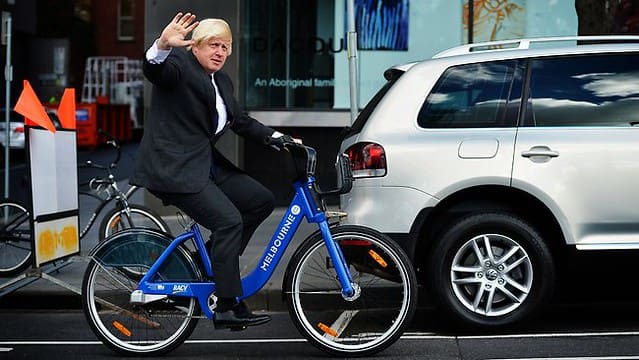What Will Boris Johnson’s Historic UK Announcements Mean for Micromobility?

On Tuesday 28th July 2020, UK Prime Minister Boris Johnson made his much anticipated announcement giving details about his government’s ambitious plans to boost walking and cycling.
The £2 billion (A$3.64 billion) in new funding over the next five years had been announced previously by his Transport Secretary Grant Shapps, but much of the detail had not.
Apart from the unprecedented funding levels, which gave the announcement greater relevance, some of the key details included:
- Launching a detailed best practice design standards manual for all new infrastructure. You can download a full copy of the 188 page manual here.
- Creating Active Travel England as a new expert body to ensure that projects meet new design standards. It will be led by a National Cycling and Walking Commissioner and have the power to decide which applications are funded from the £2 billion budget and also to publish reports on highway authorities, grading them on their performance in relation to active travel.
- Announcing that paint on the road will no longer be a permissible option when applying for funding. Instead new infrastructure must offer physical separation and protection.
- A new program to encourage GPs to prescribe cycling, with patients able to access bikes through their local surgery.
- Making streets safer for micromobility users through new higher safety standards for trucks and modifications to the UK’s highway code.
- Transport hub upgrades, notably parking for bikes.
- Bike repair vouchers to encourage existing bike owners to get their bikes mobile again. Starting with 50,000 £50 (A$90) vouchers released in conjunction with the announcement.
- Funding for up to 12 ‘mini Hollands’ (local city example projects), alongside the creation of at least one zero-emission transport city centre.
- Setting up a new national e-bike programme, to help those who are older, have to travel long distances or are less fit to take up cycling
From the breadth of these measures and his seemingly ad lib comments in this informal Twitter video that followed his official announcement it appears that Boris Johnson personally understands the key issues that he’s hoping to address.
He said, “What we want to see is a long term shift towards cycling, much more cycling, across the whole nation and not just because it is environmentally friendly. It’s a beautiful way to travel around, but also because it gets you fit. The fitter we get, the happier we are and the more we save our NHS (National Health Service) as well.”
Clearly ambitious plans like this will take time to roll out. Active Travel England will need to be formally created, hire staff, start considering funding applications from across the UK, make approvals. Each project will have to go through a community consultation process, be tendered for construction and finally, built and opened.
But in the short term, the fact that cycling and by implication all forms of micromobility have received such a strong personal endorsement from the UK’s Prime Minister should help to build upon the momentum already achieved in the UK through the additional and previously funded £250 million (A$452 million) temporary active travel infrastructure program, that has been rolled out in record time over recent months as part of the UK’s Covid-19 response.
Further Reading: You can download here a 50 page summary, including the program in detail with illustrations, charts and data, published by the UK Department for Transport, entitled ‘Gear Change – A bold vision for cycling and walking’
